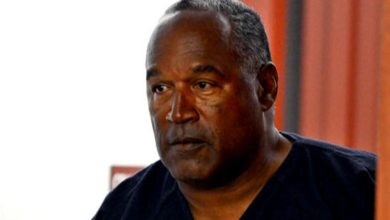Supreme Court Temporarily Allows Idaho Ban on Gender-Affirming Care for Minors: NPR

Mandel Ngan/AFP via Getty Images

Mandel Ngan/AFP via Getty Images
The U.S. Supreme Court on Monday granted Idaho’s emergency request to temporarily reinstate a state law banning gender-affirming care for children under 18.
The law, which criminalizes the medical treatment of gender dysphoria in minors, will now come into force, except in the case of two anonymous complainants who were until now treated with hormones and could continue to receive treatment.
In the case of Idaho, the state was not asking the court to address transgender rights head-on. Instead, the state asked the justices to consider whether the scope of the lower court’s order blocking enforcement of the law was appropriate. Idaho argued that the district court judge only had the authority to prevent the law from being applied to the two plaintiffs in the lawsuit, not to prevent its application statewide.
A majority of the justices appeared to embrace this new legal theory on how to handle such emergency requests to the court, although there appear to be two different camps dividing conservatives and no clear definition of what the rule will now be . Chief Justice John Roberts gave no indication of his view and joined neither the lengthy opinions of Justices Neil Gorsuch, Clarence Thomas and Samuel Alito, nor the opinion of Justices Brett Kavanaugh and Amy Coney Barrett. Justice Ketanji Brown Jackson, joined by Justice Sonia Sotomayor, dissented. Justice Elena Kagan noted that she would have denied the request for a stay but did not join the dissent.
Nonetheless, the jumble of opinions would appear, at least potentially, to have far-reaching consequences by significantly limiting the effects of any constitutional challenge to a state or federal law.


Although today’s action is temporary, so were the actions of the lower courts, which prevented the law from taking effect while the case was pending. Following the Supreme Court’s action Monday, the law will take effect immediately and remain in effect during ongoing litigation over its constitutionality.
Several other bans similar to the one at issue in Idaho are waiting in the wings. Two of them – from Kentucky and Tennessee – have filed petitions with the Supreme Court seeking a full review, as opposed to the preliminary review in the Idaho case. Laws in Kentucky and Tennessee prohibiting gender-affirming care for minors are currently in effect.
Last year, the court opted not to hear two litigation cases related to transgender issues, one involving the mistreatment of a transgender prisoner and another involving the state’s ban on transgender student participation to sporting activities.
Some 21 states passed laws last year restricting gender-affirming care for minors. All say they protect children from dangerous and unproven treatments that they may later regret.

Transgender rights advocates categorically disagree with this characterization of widely accepted medical standards for care for gender dysphoria. They warn that medical treatment options are key to combating anxiety and depression in trans youth and preventing suicide. Both parties agree that not all treatments are suitable for all ages. The question remains who has the right to decide what is appropriate for each patient: parents and doctors, or the state legislature?
The plaintiffs in this case are two anonymous trans girls who used puberty blockers and are currently taking estrogen to treat gender dysphoria. Idaho court records call them “teenagers.” The district court found that interrupting their care would cause “severe psychological distress.”
The district court said the entire law must be suspended to avoid a flood of lawsuits from anyone seeking continued treatment and to allow both plaintiffs to actually receive the medical care requested. The plaintiffs’ lawyers also argued that doctors and pharmacists would be reluctant to risk up to 10 years in prison to treat anyone, plaintiff or not, unless the law was suspended. Monday’s Supreme Court decision will test that theory.
NPR News





